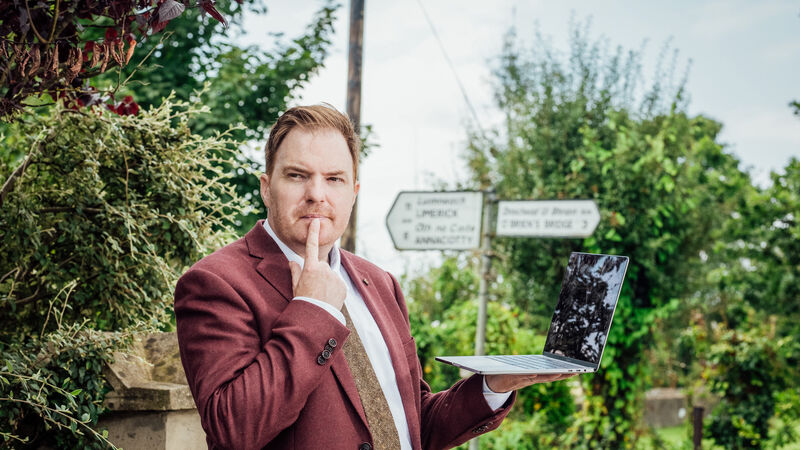Bernard O'Shea: I didn’t know writing for a living was going to be this hard

Bernard O'Shea: 'Changing career can be scary. There are some questions you should ask yourself if you're thinking of making a job move.' Picture. Brian Arthur
When I consider my working life so far, I think of Frank Sinatra singing That's Life. “I’ve been a puppet, a pauper, a pirate, a poet, a pawn and a king”.
If I were to sing it, it would be “I've been a barman, a bad musician, a researcher, a comic, a writer and lots of unusual embarrassing things.”







